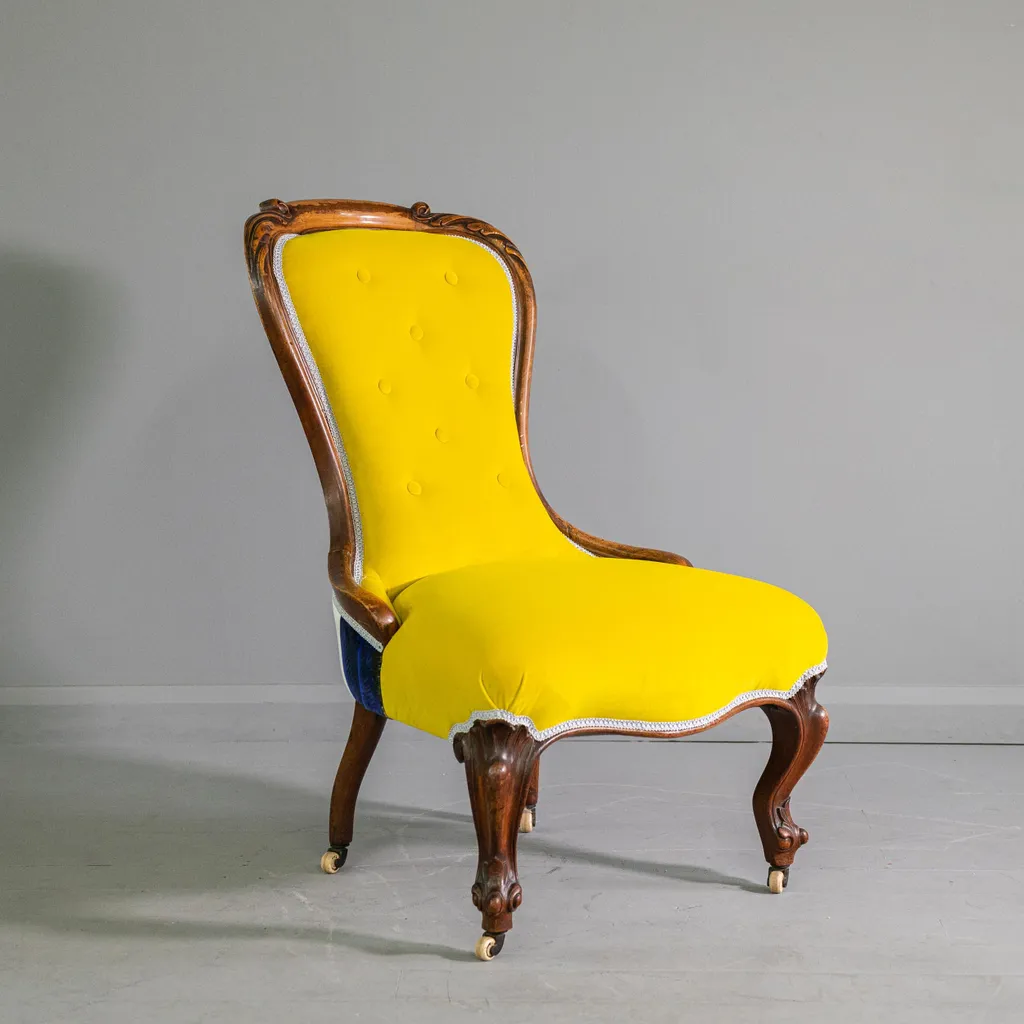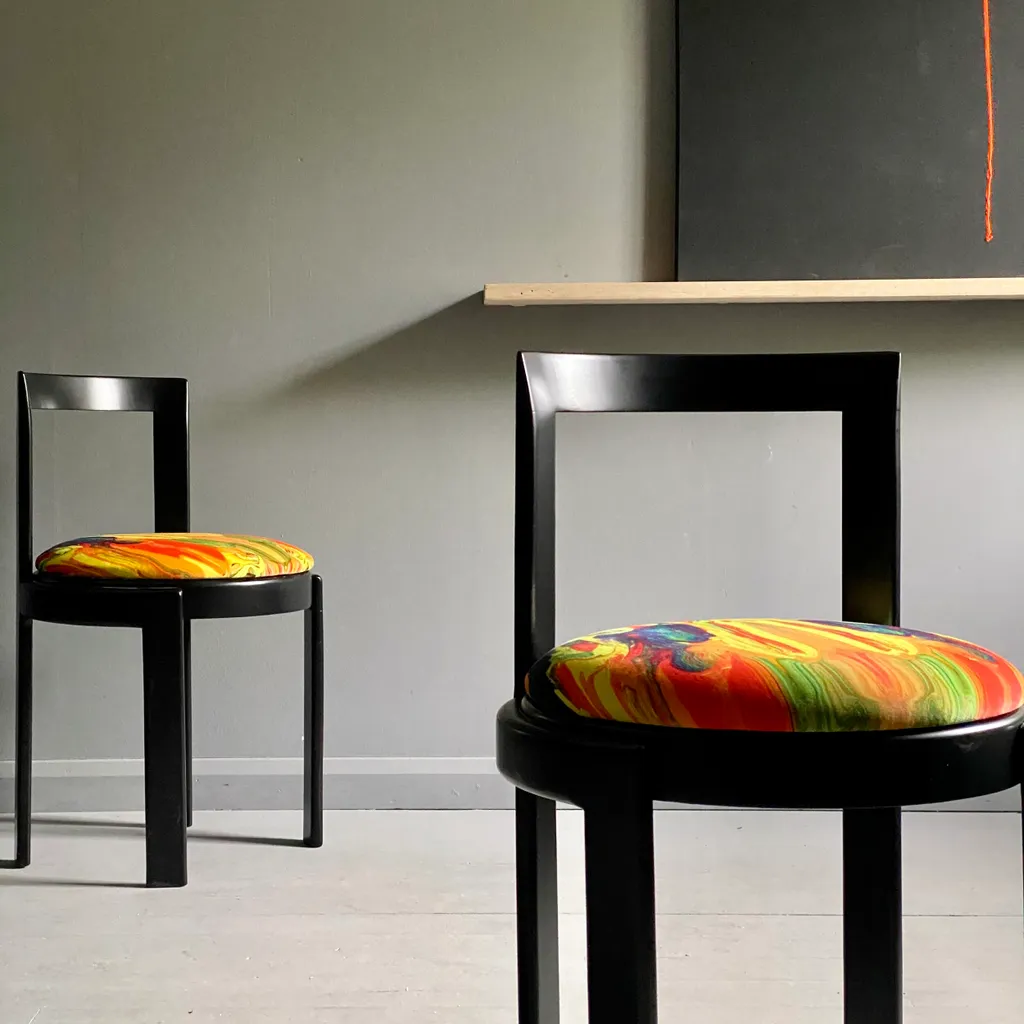Collaboration for me is more about being inspired by someone else. They don’t necessarily have to be in the field of furniture or upholstery, they can be photographers and knitwear designers who have created something beautiful. I admire what these craftspeople do and want to find a creative way to fuse their ideas into my work.
I have found the easiest way to do this is by seeking out fabric designers. I’ll see a pattern that captures my attention and I’ll know instantly that it belongs on a particular chair that I have waiting in my workshop. There are some fabrics that I have come across, which I haven’t yet identified the perfect chair for.

With this in mind, I feel the natural next step for me would be to bring out a range of furniture. I would love to design an item from the ground up. I do have some designs in my head, but it’s about finding the right person to collaborate with. For example, I’d need to find someone who makes things using sustainable timber.
You might also like why we should make do and mend as much as possible
When looking for someone to team up with, I would always want to ask them: ‘How much waste do you generate?’ Because everybody produces waste and it’s what you do with it that determines whether you’re thinking about the future of the planet.
Every time I work on an upholstery project, I always make sure I cut the fabric in a particular way so that I have the least amount of it left over. It’s then my duty to figure out how I can use those scraps – so it might mean that I put a small piece on a stool or sew two bits together to do the back of a chair. Almost every piece of leftover material is used on another job.

When you look at my chairs, you’ll sometimes see I’ve put a little bit of fabric on the back or the piping doesn’t go all the way round. The inspiration for this originated with a chair I upholstered a few years ago – it’s not because I had initially designed it that way on purpose but because I had run out of material. Now, this is a feature design of mine that is sustainable at the same time.
If you're interested in furniture, check out our round-up of the best furniture upcycling and restoration courses available online and in person.
You might also like meet the dealers championing salvage and reclamation yards
I’m also not what you’d call a ‘commercial manufacturer’, I am more in tune with the slow movement. It once took me two years to re-cover a chair, simply because I had to wait for the right leftover pieces of fabric to come along. So the challenge would be to find someone who is happy to work this way too.
More from Jay Blades:
How I got in to furniture restoration
My favourite small-scale artists
How I found fame on Money for Nothing
